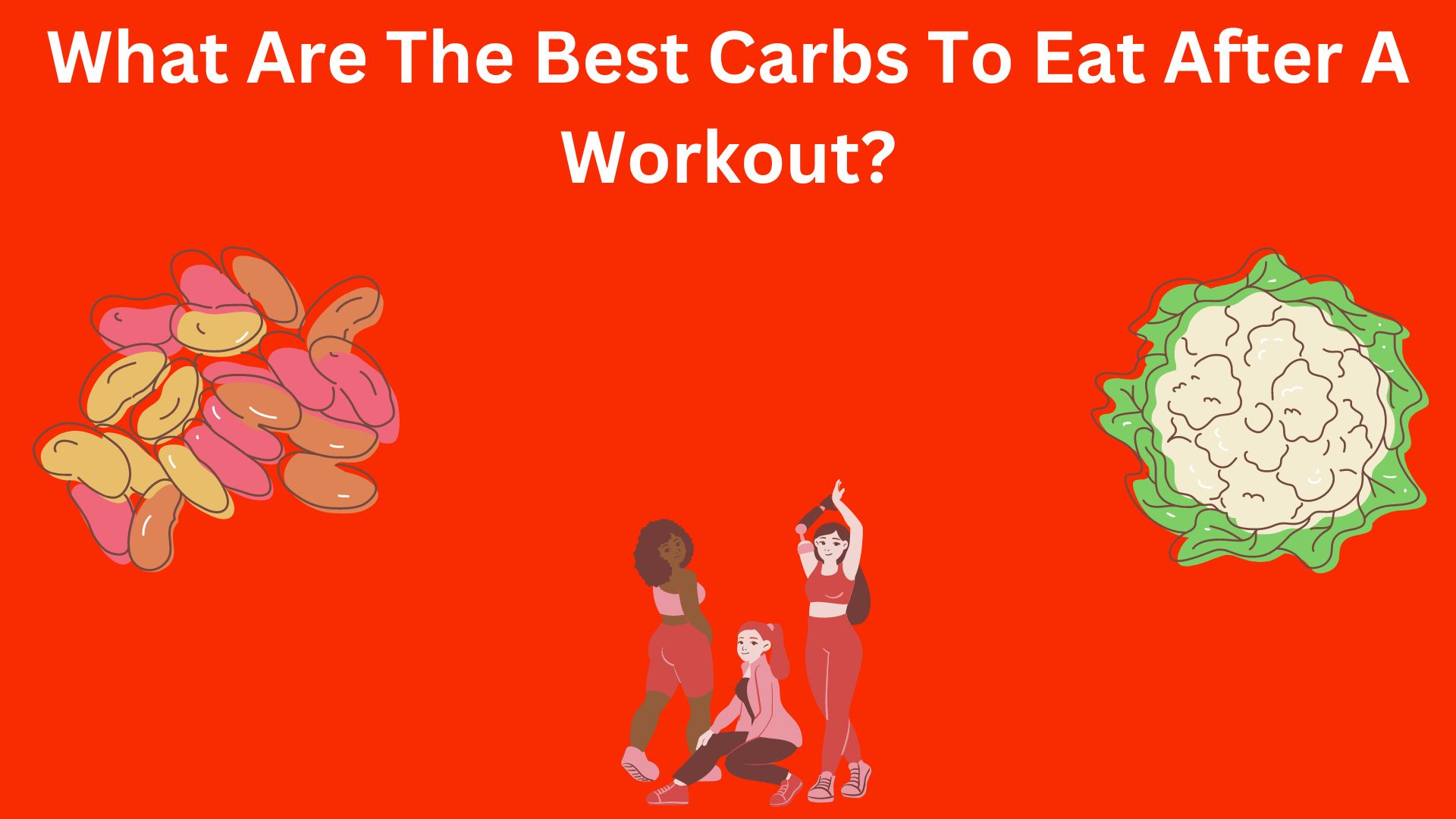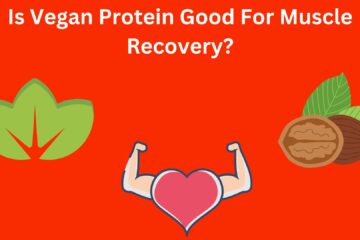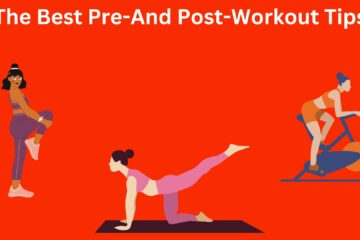Welcome to our blog about the best carbs for post-workout!
Exercise is a vital component of living a healthy lifestyle, and a good diet can help you achieve your fitness objectives. Carbohydrates are an important macronutrient for post-workout nutrition because they can assist repair and rebuilding of muscle tissue, restore glycogen stores, and boost recovery.
However, with so many various carbohydrate options available, it can be difficult to determine which ones are the best choices for post-workout nourishment. In this blog, we’ll look at the various types of carbs and their effects on the body, as well as make some suggestions for the ideal carbs to eat after a workout.
We’ll also discuss how many carbohydrates you should consume after an exercise, as well as how to include carbs into your post-workout meal or snack. This blog will give you the information you need to make informed choices regarding your post-workout nutrition, whether you’re aiming to develop muscle, enhance endurance, or simply maintain a healthy lifestyle.
10 Different Types Of Carbs
1. Simple carbs
These are carbohydrates that the body absorbs fast and provides a quick source of energy. Sugar, honey, and fruits are among the examples.
2. Complex carbs
These are carbohydrates that the body breaks down more slowly, resulting in a slower and more prolonged source of energy. Whole grains, legumes, and veggies are a few examples.
3. Fiber
This is a form of carbohydrate that the body does not digest, but it offers bulk and aids digestion and regular bowel motions. Fruits, veggies, and whole grains are a few examples.
4. Starch
This is a carbohydrate present in foods such as potatoes, rice, and cereals. It is a complex carb that the body breaks down slowly and gives a steady source of energy.
5. Sugar
This is a sort of simple carb that the body quickly absorbs and uses as a quick source of energy. It can be found in candy, sugary drinks, and various fruits.
6. Maltodextrin
This is a form of complex carb that is used in processed meals as a thickening or filler. It is quickly broken down by the body and can induce a spike in blood sugar levels.
7. Dextrose
This is a simple carbohydrate produced from corn that is used as a sweetener in processed goods. It is rapidly absorbed by the body and can result in a spike in blood sugar levels.
8. Fructose
Fructose is a simple carbohydrate found naturally in fruits and utilized as a sweetener in processed foods. Although it is digested more slowly than other simple carbohydrates, it can nevertheless induce a significant rise in blood sugar levels when ingested in high quantities.
9. Lactose
This is a simple carbohydrate present in milk and dairy products. Although it is digested more slowly than other simple carbohydrates, it can nevertheless induce a significant rise in blood sugar levels when ingested in high quantities.
10. Galactose
Galactose is a simple carbohydrate present in milk and dairy products. Although it is digested more slowly than other simple carbohydrates, it can nevertheless induce a significant rise in blood sugar levels when ingested in high quantities.
5 Best Post-Workout Carbs
- Whole grain bread or bagel: These include complex carbohydrates and are an excellent source of energy following exercise.
- Oatmeal: A good source of complex carbohydrates that can be flavored with fruit or nuts for extra nutrition.
- Brown rice: Brown rice is an excellent source of complex carbohydrates that may be easily incorporated into post-workout meals.
- Sweet potatoes: Sweet potatoes are a good source of complex carbohydrates, as well as vitamin A and other essential elements.
- Quinoa: Quinoa is strong in protein and a decent source of complex carbohydrates, making it an excellent choice for post-workout recovery.
How Many Carbohydrates Should You Eat Post-Workout?
The amount of carbs you should ingest after an exercise is determined by several factors, including the intensity and duration of your workout, your daily carbohydrate requirements, and your specific fitness goals.
Most people should ingest 0.5-0.7 grams of carbs per pound of body weight within the first 30 minutes to one hour following a moderate to high-intensity workout. If you weigh 150 pounds, for example, you should aim for 75-105 grams of carbohydrates after an exercise.
You may need to ingest additional carbohydrates after a workout if you are training for endurance sports or have a high daily carbohydrate need owing to a high level of physical activity. It is often recommended in these instances to ingest 1-1.2 grams of carbs per pound of body weight within the first hour following an exercise.
It is also crucial to note that the sort of carbohydrate you ingest after working out is important. Simple carbohydrates, such as sugar and fruit, can provide rapid energy but are not as satisfying or fulfilling as complex carbohydrates, such as whole grains and starchy vegetables.
In general, it is advised to have a balance of simple and complex carbohydrates following a workout to offer both immediate and sustained energy. It is also critical to include a source of protein in your post-workout meal to aid in muscle repair and rebuilding.
5 Ways To Incorporate Carbs Into Post-Workout Meals
- Add whole grains to your post-workout meal: Include healthy grains in your post-workout meal, such as brown rice, quinoa, oats, and whole wheat bread.
- Include a starchy vegetable in your meal: Add a starchy vegetable to your meal, such as sweet potatoes, potatoes, or squash.
- Choose a protein source that contains carbs: Choose a protein source that contains carbs, such as milk, yogurt, or legumes like beans and lentils.
- Snack on fruits: Fruits are high in simple carbohydrates and can provide a rapid energy boost after a workout.
- Add a carbohydrate-rich condiment to your meal: Include a carbohydrate-rich condiment in your meal, such as hummus, guacamole, or tahini. These can enhance the flavor and carbohydrate content of your post-workout meal.
Frequently Asked Questions On The Best Carbs To Eat After Workout
Simple carbohydrates like glucose, fructose, and maltodextrin are excellent post-workout carbs because they replace glycogen stores fast. Fruits, sports drinks, rice cakes, vitamins, and honey are some examples. It is critical to have a variety of nutritious carbs in your diet for a variety of nutrients.
The ideal amount of carbohydrates to consume after a workout is determined by factors such as workout intensity, duration, muscle mass, and overall carb intake. A basic rule of thumb is to consume 0.5-0.7 grams of carbohydrate per pound of body weight within 30 minutes to 1 hour following exercise. It is advisable to seek tailored advice from a certified dietitian or sports nutritionist.
Low-carb or ketogenic diets can still benefit from carbohydrate consumption after exercise, but the amount and time must be adjusted. Choose lower carbohydrate options like vegetables or tiny fruits, take smaller quantities, and see a professional for specific advice to refill glycogen stores and help muscle recovery while staying within total carbohydrate targets.
The timing of carbohydrate consumption can affect exercise performance and recovery. The timing of carbohydrate consumption before and after a workout is determined by factors such as activity intensity and duration, carbohydrate type, and individual goals and demands. Carbohydrates consumed before a workout can provide energy, minimize fatigue, and improve endurance; carbohydrate consumption after a workout can restore glycogen stores, and support muscle healing, and muscle development. Consult a specialist for individualized advice.
The timing of carbohydrate intake can affect workout performance and recuperation. Whether to eat carbs before or after an exercise is determined by factors such as workout intensity and length, carb type, and individual goals and demands. Ingesting carbs before a workout can offer energy, minimize fatigue, and enhance endurance; consuming carbs after a workout can replace glycogen stores, and support muscle healing, and muscle development. Consult a specialist for tailored advice.
Conclusion
In conclusion, it’s critical to choose the correct carbs after a workout to aid in muscle regeneration and recuperation. Complex carbohydrates, such as whole grains, legumes, and vegetables, are generally preferable to simple carbohydrates, such as sugary snacks and drinks.
The number of carbohydrates you require after a workout is determined by the intensity and duration of your workout, as well as your own needs and goals. Aim for roughly 0.5-0.7 grams of carbs per pound of body weight within the first 30 minutes to 1 hour following an exercise.
Carbohydrates should also be included in your post-workout meal or snack for maximum recovery. A turkey and vegetable stir-fry with brown rice, a chicken and bean burrito with whole grain tortillas, or a smoothie made with Greek yogurt, berries, and rolled oats are all delicious possibilities.
Remember that appropriate post-workout nutrition is only one component of achieving your fitness objectives. It’s also critical to stay hydrated, get enough sleep, and include a range of nutrients in your diet. You may enhance your recuperation and support your body’s demands after an exercise by following these tips.




[…] which means you must burn more calories than you ingest. While a calorie deficit can be achieved by food and lifestyle modifications, exercise can also be an effective technique for weight loss and fat […]